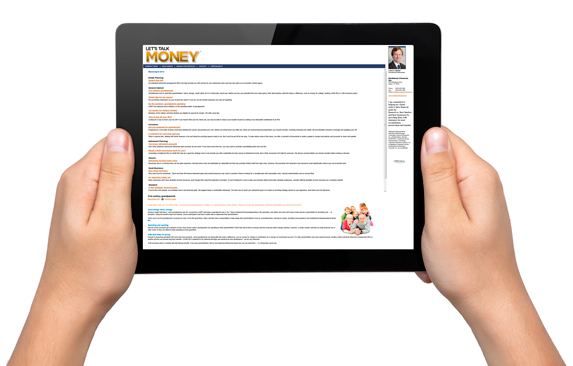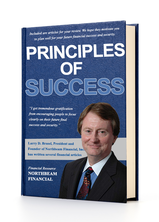INSURING YOUR INCOME-EARNING ABILITYAs a business owner, you’ve probably worked hard to build and manage a business that provides income and wealth for your and your family. In fact, most of your time, energy, and finances may have been invested in your business. As a result, it has more than likely become a significant portion of your estate. Unfortunately, the business that provides for your family during your lifetime may not do so at your death. In many cases, only a small number of family businesses are actually passed on to the next generation.
What will be the legacy of your business after your death? The business may be so dependent upon your involvement that, after your death, it may have little remaining value. In addition, attempts to pass the business on to the next generation may be thwarted by estate taxes, which can run as high as 46% in 2006, and may force the liquidation of the business. Even if your business survives, finding a buyer may not be easy. Unlike a publicly-traded firm, a small, closely-held business may not command its real value on the market. If a family member does not actively manage the business after your death, the dividends from the business—on which your family will depend—may be insufficient to provide for their needs. Planning for the Eventuality Most owners begin succession planning by deciding whether they want to pass the business on to a family member, associate, employee, or an outsider. The business will command its greatest value when it is running at full speed. In other words, you should find a buyer now. The cornerstone of a good business succession plan is the buy/sell agreement—a contract between owners, or the business itself and owners. Such an agreement is legally binding and obligates the estate of the deceased owner to sell the interest of the business defined, at a predetermined price, to: either the business itself (in a redemption agreement); to co-partners or shareholders (in a cross-purchase agreement); or to both (a hybrid agreement, or “wait and see”). It creates a market for the business interest of the deceased, sets the price, and governs the orderly transition of the business. A buy/sell agreement is only as good as the funding available to execute it. For this reason, most agreements stipulate how the purchase is to be funded. Since the agreement is triggered at your death, life insurance may be the logical and most cost-effective choice. Selecting the best method of buy/sell can be an involved process. Certain tax, estate planning, and control advantages exist with each method. The decision is almost always case-specific and should be discussed with experienced professionals. In conjunction with your attorney and accountant, your insurance professional will play a critical role in developing and executing your business continuation plans. Long-range planning is always subject to change and your buy/sell agreement should, therefore, be reviewed periodically to help assure it continues to meet your needs. BOEF0N2 Copyright © 2006 Liberty Publishing, Inc. All rights reserved. |
QUICK CONTACTREAD OUR FINANCIAL
E-NEWSLETTERS TODAY! I get tremendous gratification from encouraging people to focus clearly on their future final success and security.
Larry Brasel, President
|

|
|




